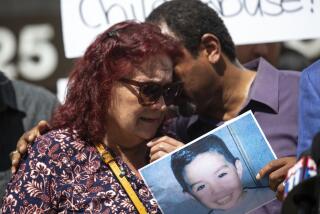Legal clinic immerses aspiring lawyers in the political process
William Richards’ last hope for a new trial appeared to die in 2012, when the California Supreme Court narrowly upheld his murder conviction. Richard was convicted after an expert witness gave forensic testimony that was later discredited.
Now Richards may get another day in court, thanks in part to some law students who managed to persuade the Legislature to overturn the state’s top court.
Meeting in a small classroom at the University of the Pacific’s McGeorge School of Law one night each week, the students are part of an unusual clinic that teaches them to be advocates in the political arena instead of the courtroom.
They brainstorm problems, draft proposed bills, persuade legislators to introduce them and then lobby for their passage.
“You have to convince people that it is a problem crying out for resolution and that you’ve got the resolution,” professor Rex Frazier, a lawyer and lobbyist who teaches the class, told the students one night.
In the clinic’s first year, students had four bills signed into law, including the one inspired by Richards’ case.
Legal clinics where students perform as lawyers in real cases under the supervision of professors have been expanding in law schools since the 1970s.
UC Irvine Law School Dean Erwin Chemerinsky likened the clinics to medical school residencies for doctors. Imagine, he said, if “medical school students never saw patients.”
McGeorge’s Legislative and Public Policy Clinic is different from most, though. Instead of helping students advocate in courts, the clinic makes them walk the hallways of the state Legislature.
The National Jurist ranked the clinic among the top 15 most innovative in the nation.
McGeorge’s proximity to the state Capitol — only a bike ride away — explains why the school offers a focus on public policy and law. The clinic, now in its second year, goes further than other classes by giving students the chance to create new laws, an opportunity that few other law schools provide. Many of its graduates hope to become lobbyists, legislative committee staff members or even legislators.
Sosan Madanat, 27, who worked on the bill on discredited forensic science, said she did not reach any conclusions about whether Richards was innocent or guilty of murdering his wife.
Whatever the facts of the case, a defendant convicted on the basis of junk science should have the opportunity to receive a new trial, she said.
“It is really an incredible feeling to say I was able to help with that,” Madanat said.
Alexander Simpson, associate director of the California Innocence Project, which represents Richards and helped sponsor the bill, said he was grateful for the students. “It takes a lot of legwork behind the scenes to make this happen,” Simpson said.
Marisa Shea, 26, helped shepherd a bill that gave victims of so-called “revenge porn” the right to sue and get their images removed from the Internet without revealing their real names in court documents.
“They were really scared off from using the civil court system,” Shea said.
The students’ presentation of the revenge porn proposal impressed Sen. Bob Wieckowski (D-Fremont), who agreed to carry the bill.
“They came all dressed up in their Sunday best, and we treated them just like any other lobbying group,” Wieckowski said. “They were professional.”
The 12 students in the clinic meet with advocacy groups and others to come up with problems that need a legislative solution. Students look for a legislator who has an interest in the subject and a strong record of passing legislation to take on their bills.
Once the bills are introduced, the students prepare witnesses for committee hearings and work to minimize opposition.
In addition to the revenge porn and junk science bills, students won passage last year of a law that requires the state Department of Social Services to investigate arrest records before allowing a job applicant to work in a place serving children or vulnerable adults. They also helped create a new law that requires police to receive training in detecting elder abuse.
During a recent class, the students in this year’s clinic sat at long tables and gave presentations on their projects.
Alexander Khan, 28, described meeting with a legislator whom the students asked to carry a bill that would expand reporting requirements for lobbyists. The students had rehearsed with Frazier before the meeting, and it had gone well.
“We were a little nervous,” Khan said, “but we settled down really well.”
Frazier, 45, warned the students that powerful lobbyists opposed to the bill would exploit any drafting errors. The adjunct professor said he helps his students identify proposals that make good policy sense and that can pass with smart politics.
“I have seen terrific bills die because of bad politics and bad bills succeed because of good politics,” he said.
Another bill being proposed by students this year would provide electronic notification of advance healthcare directives to hospitals. Frazier advised the students to use powerful anecdotes to explain what happens when hospitals do not know patients’ desires and the patients are too ill to tell them.
Three students tried unsuccessfully to win passage of a similar bill last year. This year’s students are trying to address concerns about costs and the state’s past difficulty in implementing major technological projects.
Others worked on proposals to combat inaccurate eyewitness testimony in trials, ease water transfers among counties and create legal fellowships.
Elizabeth Kim, 30, and a partner described their work on a bill about “compassionate choices.” Asked if that meant assisted suicide, Kim quickly insisted the aim was something else.
Already sounding like a practiced politician, she corrected: “We prefer the term, ‘end-of-life options.’”
Twitter: @mauradolan
More to Read
Start your day right
Sign up for Essential California for news, features and recommendations from the L.A. Times and beyond in your inbox six days a week.
You may occasionally receive promotional content from the Los Angeles Times.






